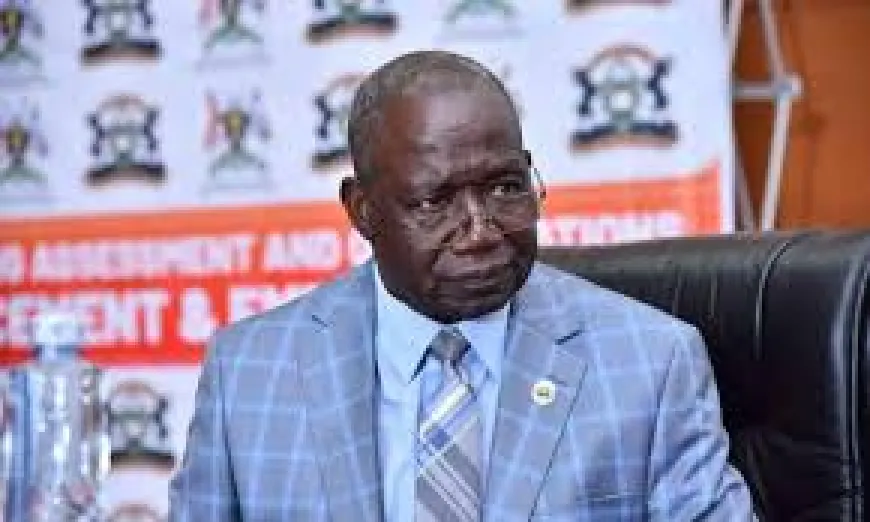S4 STUDENTS TOLD TO IGNORE FAKE LEAKED UNEB PAPERS.

Senior four Candidates for the 2024 UCE examination, who are also the first to be assessed under the revised lower secondary curriculum, were briefed on Friday 11th October in preparation for their initial examination on Monday.
UNEB stated that this briefing is the first item on the examination timetable, providing learners with essential guidelines on the dos and don’ts of the examination.
During the briefing exercise, the press visited various schools , and most head teachers encouraged students not to be afraid.
The examination rules and guidelines were spelled out to ensure that students were well-prepared for the examination.
Godfred Ssebunya, the S.4 class teacher at one the visited schools, cautioned learners about the dangers of malpractice and the use of smartphones during the examination period. He highlighted that many individuals might be sharing what they refer to as “UNEB papers” on social media and urged students not to get caught up in these distractions. “I know you have smartphones and a lot is circulating on social media, but don’t let it distract you. If you find yourself in a group where those so-called ‘busasi’ are being shared, do not reshare them, as this is also an offence. Instead, report the matter,” Ssebunya advised.
According to the 2021 UNEB Act, it is illegal to share materials that claim to be UNEB papers or any content related to national examinations. Section 25(1) states that anyone who gains or attempts to gain possession of any examination paper, part of a paper, or related materials commits an offence. Those convicted face penalties of up to two thousand currency points in fines, a maximum prison term of ten years, or both.
In previous years, candidates, teachers, and parents have frequently shared what they call leaked UNEB items on social media, leading to multiple arrests last year.
The misuse of social media for examination malpractice has become a growing concern within the education system, not just in Uganda but globally. Some countries have even taken drastic measures, such as temporarily blocking social media platforms during national examination days to deter cheating.
What's Your Reaction?
 Like
0
Like
0
 Dislike
0
Dislike
0
 Love
0
Love
0
 Funny
0
Funny
0
 Angry
0
Angry
0
 Sad
0
Sad
0
 Wow
0
Wow
0




















































